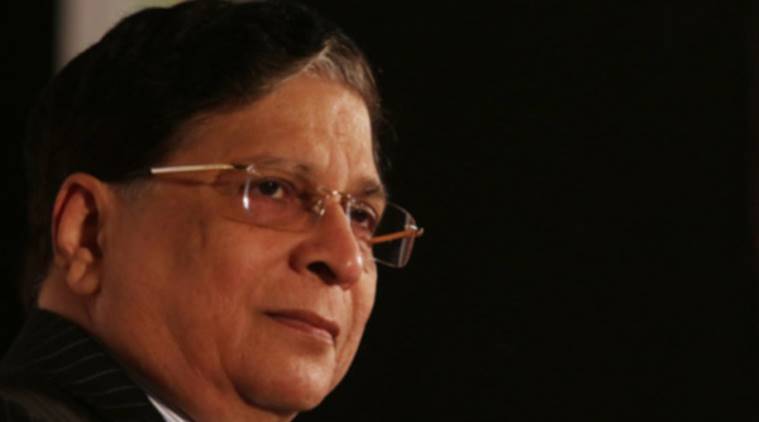 Chief Justice of India Dipak Misra (Files)
Chief Justice of India Dipak Misra (Files)
A day after seven Opposition parties, led by the Congress, moved a notice for impeachment of Chief Justice of India (CJI) Dipak Misra, highly placed sources aware about the scrutiny process in the Rajya Sabha Secretariat said they had violated the provisions of the ‘Handbook for Members of Rajya Sabha’, which says any notice submitted to the Chairman of the Rajya Sabha should not be given advance “publicity”. However, RS Secretariat sources said this violation alone cannot be sufficient reason for rejecting the impeachment notice.
After handing over the notice for impeachment to Vice President M Venkaiah Naidu, who is also Chairman of the Rajya Sabha, the Opposition leaders had addressed a press conference on Friday. While they spoke on the charges they had levelled against the CJI, they did not, however, release a copy of the notice.
A former secretary general of the Rajya Sabha is learnt to have pointed out to the RS Secretariat, which is examining the impeachment notice, that Rule 2.2(VIII) in the chapter on ‘General Matters’ of the ‘Handbook for Members of Rajya Sabha, says: “A notice for raising a matter in the House should not be given publicity by any member or other person until it has been admitted by the Chairman and circulated to members. A member should not raise the issue of a notice given by him pending consideration of the chairman.”
On December 8, 2017, the parliamentary bulletin for Rajya Sabha also reminded members that as per “parliamentary customs and conventions”, a notice submitted to the House should not be given publicity by any member. “Kind cooperation of all members is solicited,” it said.
But Opposition leaders on Saturday cited Article 19(1)a of the Indian Constitution to assert their right to freedom of speech. “I am not aware of any such handbook, is this a rule they are quoting? What convention are they talking about? Ask the BJP if this was practised when similar proceedings were carried out in the past. Even if such a provision exists, it will fall foul of Article 19(1)a of the Indian Constitution which guarantees freedom of expression. There are exceptions only for contempt of court, security of the state and defamation,” an Opposition MP, who is among those who have signed the impeachment notice, told The Sunday Express.
Speaking on condition of anonymity, another former secretary general of the Rajya Sabha said the handbook is just a “guideline” listing good practices, and it is the ‘Rules of Business’ that are “paramount”. The former official said the RS Secretariat has to ascertain only two points: whether the notice has the signatures of 50 sitting members, and whether it is a substantive motion. “A motion must lead to action. That wording is important. If it does not, it can be rejected. But there is no way the motion can be pre-judged. It is for the inquiry committee of judges to decide,” he said.
“I am not aware of this provision (barring publicity), but in any case the handbook is just a guideline. The Rules of Business of the RS are paramount. In the case of Lok Sabha, for example, the relevant provision about publicity to notices is a rule. For RS, it’s just a handbook,” he said.
“The notice is under examination. But violation of just this one rule cannot be sufficient ground for its rejection, if all other conditions are met. The Vice President is travelling, he will be back on April 23-24. A decision will be taken in keeping with all other rules and provisions,” said a senior official in the Rajya Sabha Secretariat.
But government sources maintained that dismissal of the notice “at some stage” is inevitable. “The press conference shows what has already been alleged in many quarters, that the notice is politically motivated,” said a senior official in the Rajya Sabha Secretariat.
On Friday, seven Opposition parties — Congress, CPI(M), CPI, NCP, SP, BSP and IUML — launched an unprecedented move to impeach CJI Dipak Misra, accusing him of corruption, misusing his authority and failing to protect the independence of the judiciary. The notice for impeachment was signed by 64 MPs and seven former MPs, who recently retired.
In their notice, the parties listed five “charges of misbehaviour” against the CJI and argued that, as MPs, they are “entitled to hold the Chief Justice accountable” and that “the majesty of the law is more important than the majesty of any office”.
In the past, impeachment notices have had a high strike rate. In four out of six instances, notices for impeachment motions against Supreme Court and High Court judges were admitted and followed up with the constitution of inquiry committees.